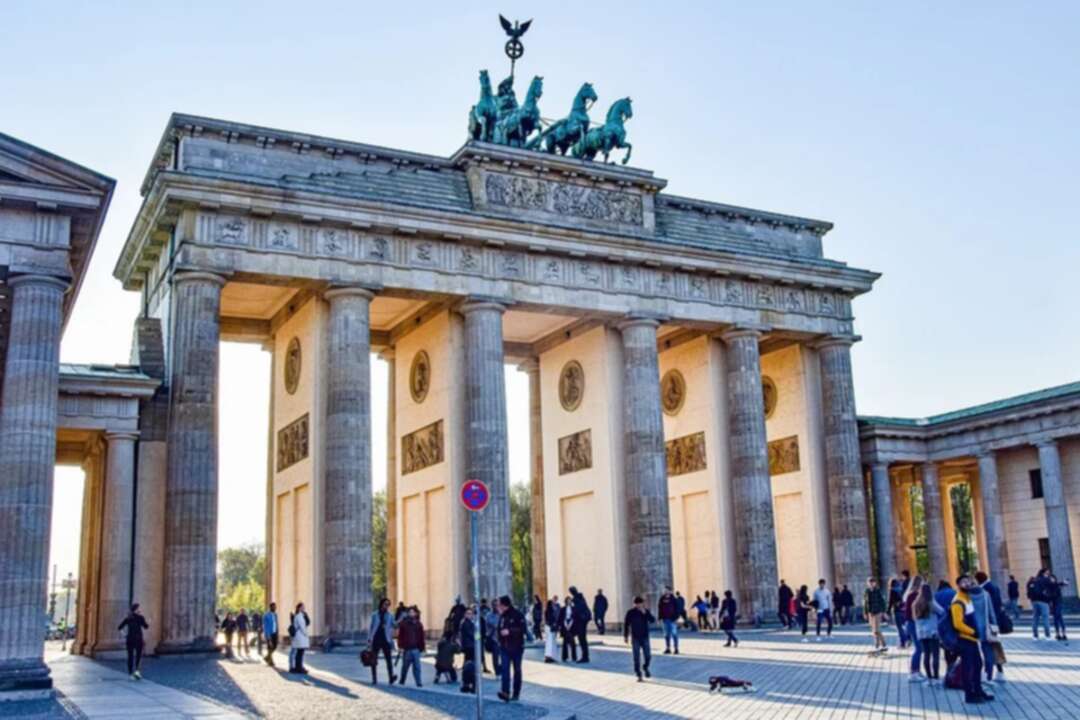-
Germany to place tighter curbs on unvaccinated people as cases hit record high

The BBC reported, Germany is set to introduce tighter curbs on people who have not been vaccinated against Covid-19, as cases in the country hit a record high.
Restrictions for unvaccinated people will be introduced in areas where hospital admissions exceed a set threshold, Chancellor Angela Merkel and leaders of Germany's 16 states agreed.
Under the rules, the unvaccinated will be excluded from certain venues.
Mrs Merkel described the situation with Covid in the country as "dramatic".
She said: "We need to quickly put a brake on the exponential rise" in cases and intensive care unit occupancy.
The number of daily cases in Germany rose sharply on Thursday to more than 65,000 - by far the highest figure since the pandemic began.
 Germany-Heidelberg-Neckar river/Pixabay
Germany-Heidelberg-Neckar river/PixabayThe new rules, agreed in a crisis meeting, mean that in areas with a hospitalisation rate of more than three Covid patients per 100,000 people over the past seven days, only the vaccinated and those who have recovered from the virus will be allowed to access to public spaces like sporting events, cultural shows and restaurants.
Read more: Amazon rainforest in Brazil hits highest levels of deforestation in over 15 years
The majority of the country's states currently exceed this threshold.
Areas with a hospitalisation rate of more than six will have to introduce a "2G plus" rule, requiring people to be tested as well as vaccinated, and regions with a rate of more than nine will have to introduce further measures, like restrictions on contact.
Mrs Merkel and the other leaders also agreed on Thursday that healthcare and care home employees must be vaccinated to control the spread of the virus.
Their announcement came after Germany's lower house of parliament voted in favour of a new set of Covid measures, including limiting access to public transport and the workplace to only people who have been vaccinated or tested.
These measures still need to be agreed by parliament's upper house on Friday, and some conservative politicians have threatened to block the bill.
The states of Saxony and Bavaria have already imposed so-called 2G rules placing restrictions on unvaccinated people in response to a surge in cases.
Germany is not the first European country to introduce restrictions on people who have not been vaccinated against Covid.
Read more: Russia will evacuate over 380 Russian and foreign citizens from Afghanistan
Both the Czech Republic and Slovakia on Thursday announced tighter restrictions for unvaccinated people, in a bid to encourage vaccine uptake.
Under the rules approved by the Czech government, only those who are vaccinated or have recovered from Covid in the past six months will be allowed enter restaurants, attend certain events and use various other services from Monday.
Slovakia's Prime Minister Eduard Heger described new measures there as a "lockdown for the unvaccinated".
Austria earlier this week placed about two million people who have not been fully vaccinated against Covid-19 into lockdown. It means they are only allowed to leave home for limited reasons, like working or buying food.
"We are not taking this step lightly, but unfortunately it is necessary," Chancellor Alexander Schallenberg said.
Two provinces in Austria - Upper Austria and Salzburg - will go into full lockdown from Monday, media reports say.
Overall, Europe has again become the area most seriously affected by the pandemic.
The World Health Organization warned on Thursday that there will be a "hard winter ahead" for the region.
Source: BBC
You May Also Like
Popular Posts
Caricature
BENEFIT Sponsors BuildHer...
- April 23, 2025
BENEFIT, the Kingdom’s innovator and leading company in Fintech and electronic financial transactions service, has sponsored the BuildHer CityHack 2025 Hackathon, a two-day event spearheaded by the College of Engineering and Technology at the Royal University for Women (RUW).
Aimed at secondary school students, the event brought together a distinguished group of academic professionals and technology experts to mentor and inspire young participants.
More than 100 high school students from across the Kingdom of Bahrain took part in the hackathon, which featured an intensive programme of training workshops and hands-on sessions. These activities were tailored to enhance participants’ critical thinking, collaborative problem-solving, and team-building capabilities, while also encouraging the development of practical and sustainable solutions to contemporary challenges using modern technological tools.
BENEFIT’s Chief Executive Mr. Abdulwahed AlJanahi, commented: “Our support for this educational hackathon reflects our long-term strategic vision to nurture the talents of emerging national youth and empower the next generation of accomplished female leaders in technology. By fostering creativity and innovation, we aim to contribute meaningfully to Bahrain’s comprehensive development goals and align with the aspirations outlined in the Kingdom’s Vision 2030—an ambition in which BENEFIT plays a central role.”
Professor Riyadh Yousif Hamzah, President of the Royal University for Women, commented: “This initiative reflects our commitment to advancing women in STEM fields. We're cultivating a generation of creative, solution-driven female leaders who will drive national development. Our partnership with BENEFIT exemplifies the powerful synergy between academia and private sector in supporting educational innovation.”
Hanan Abdulla Hasan, Senior Manager, PR & Communication at BENEFIT, said: “We are honoured to collaborate with RUW in supporting this remarkable technology-focused event. It highlights our commitment to social responsibility, and our ongoing efforts to enhance the digital and innovation capabilities of young Bahraini women and foster their ability to harness technological tools in the service of a smarter, more sustainable future.”
For his part, Dr. Humam ElAgha, Acting Dean of the College of Engineering and Technology at the University, said: “BuildHer CityHack 2025 embodies our hands-on approach to education. By tackling real-world problems through creative thinking and sustainable solutions, we're preparing women to thrive in the knowledge economy – a cornerstone of the University's vision.”
opinion
Report
ads
Newsletter
Subscribe to our mailing list to get the new updates!






















